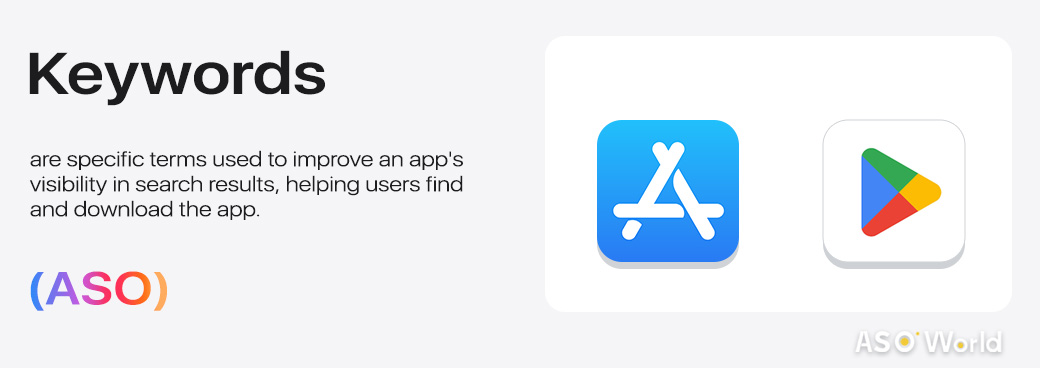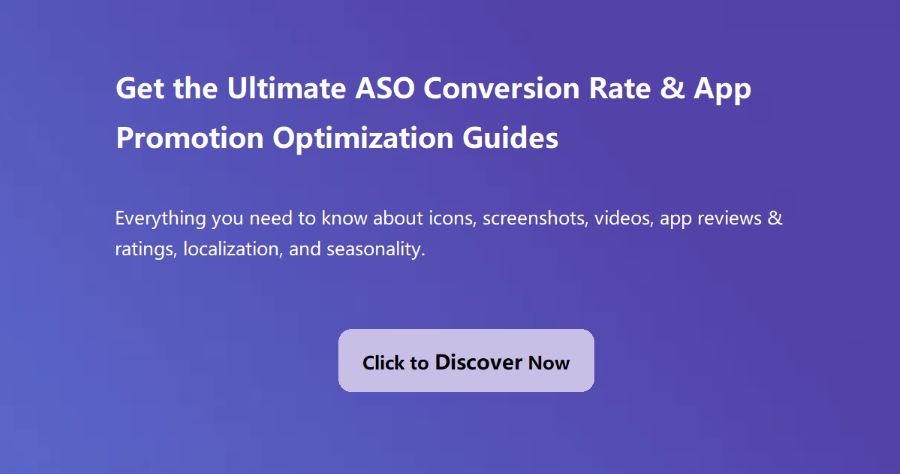
What are App Store Keywords?
App keywords are words or phrases developers use to describe their app within its store listing. These keywords are also the primary means potential users discover apps within overcrowded stores. They are entered as search queries that help users locate the necessary app or game.
Why are App Store Keywords Important?
App Store keywords are important because if a keyword a user searches for appears within the metadata on an app’s product page, there’s an opportunity that the app can rank for that particular word/phrase. App developers need their apps to rank as high as possible for as many relevant keywords/phrases as they can in order to increase discoverability.
Using keywords effectively can improve an app’s ranking, its impression numbers, and growth. Using them ineffectively will have a negative impact on an app’s discoverability. Less discoverability means fewer impressions which results in limited growth via the App Store search funnel. Even with good conversion rates, an app needs exposure in order to grow.
Making sure an app ranks for keywords that are most likely to get quality users depends on the intent and the volume of people searching for that word in the App Store.
It can be tricky for new apps facing a competitive ranking for valuable keywords. If a keyword is too competitive (proven by lots of apps ranking for it) it’s possible an app won’t rank which will affect the app’s discoverability.
But an app developer must try to rank for the keywords similar apps (competitors) are succeeding with. It’s a fine balance.
While the exact algorithms used by the App Store and Google Play remain non-public, several key factors should be taken into consideration:
- Keyword Relevance: The extent to which app metadata (app title, description, keywords) aligns with user search queries. Apps that effectively incorporate relevant ASO keywords are more likely to rank higher in search results.
- Keyword Density: The frequency of targeted keywords within app metadata. Keyword stuffing can harm app credibility and user experience, so try to keep this parameter within the 2-3% range.
- User Engagement: App downloads, ratings, reviews, and retention rates contribute to app store rankings.
- App Quality: App stability, functionality, usability, and design aesthetics influence user experience and, consequently, app store rankings. High-quality apps typically have a higher ranking.
Expert Tips: It’s worth highlighting that in the App Store, developers and marketers can’t use the description metadata to rank with keywords, unlike Google Play where it’s taken into account through Google Play search ranking algorithms.
App Store Keywords and ASO
Keywords optimization is one of two ASO pillars; identifying the keywords that will drive optimum discoverability, growth, and ultimately app installs. Without making it a top priority to add effective keywords, check regularly (using one of the countless tools online) that they’re ranking well, and updating them accordingly, it’s highly unlikely an app will see much success through App Store search.
An ASO marketing strategy depends on keyword tracking/analysis and as a recursive process; if an app’s keywords are failing to place it close to the top of a related search it’s time to investigate what’s going on and what steps can be taken to see better performance results.
How to Do Comprehensive App Keyword Research?
The primary goal of app keyword research is to build a comprehensive list of keywords that accurately reflect the app's features, functionalities, and target audience.
However, before getting down to the research itself, it’s vital to understand its key components in the context of app store optimization:
- User Intent Understanding: ASO keyword research begins with gaining a deep understanding of what your users are searching for and why.
- Competitor Analysis: By studying the keywords used by competing apps in the same niche or category, developers can identify gaps and opportunities.
- Balancing Keyword Relevance and Volume: While relevance ensures that keywords accurately reflect the app's features, search volume indicates the level of demand for those keywords among users.
- Using Long-Tail Keywords and Semantic Variations: Long-tail keywords are specific phrases that cater to niche audiences, offering opportunities for more targeted visibility and reduced competition. Semantic variations include synonyms, related terms, and alternative phrasings that broaden an app's search relevance and reach.
- Keyword Optimization: This involves strategically incorporating keywords from your comprehensive list into various elements of the app's metadata (app title, description, and keyword field), monitoring results, and experimenting with new iterations.
Let’s explore a comprehensive approach to ASO keyword research that empowers developers in their optimization endeavors.
>>> How to Choose the Best Keywords for Your App?






